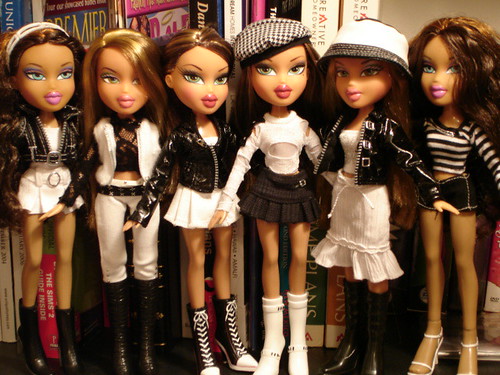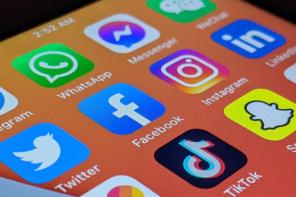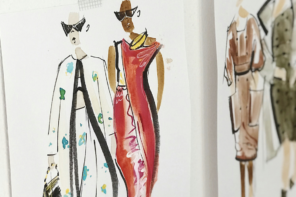From low-rise jeans to babydoll tees, there is no denying that the fashion trends of the early 2000s are back. In the past year, the ‘Y2K Aesthetic’ has spread like gaudy and glitzy wildfire, particularly among a Gen Z demographic. A generation recognized for its commitment to social justice, Gen Z has established itself as a progressive generation that celebrates all bodies; however, many fear this resurgence of micro shirts and mini skirts will lead to an inevitable return of the fatphobic attitudes that dominated the Y2K period.
These worries are far from baseless. When Y2K fashion first emerged, pieces were designed with a particular (read: thin) body type in mind, largely excluding any body that did not fit into this narrow mold. Meaghan Wray, a plus-size model and freelance journalist who focuses on beauty, pop culture, and fat liberation, notes the Y2K aesthetic was “less about fashion and more about celebrating thin bodies. In fact, the body was the fashion.” Her memories of growing up in the early 2000s are saturated with feelings of body insecurity and self-loathing, sentiments that have taken her decades to overcome.
While we have come a long way since Kate Moss boldly proclaimed that “nothing tastes as good as skinny feels,” it is a valid fear that the resurgence of Y2K fashion could be a step backward for body positivity within the fashion industry. It poses the question: is it possible for this fashion aesthetic to cycle back sans its toxic connotations?
When Y2K fashion first emerged, pieces were designed with a particular (read: thin) body type in mind, largely excluding any body that did not fit into this narrow mold.
While a controversial article published by the New York Post, entitled “Bye Bye Booty: Heroine Chic is Back” seemingly suggests a grim answer, the immense backlash it garnered provides hope we have learned our lesson from the body terror that ruled the early 2000s. Alluding to the “Heroin Chic” aesthetic of the 2000s—which romanticized drug-abused, emaciated frames as the ‘ideal body’ for Y2K fashion—the post made particularly large waves among body positive influencers. While the article supposedly critiques a reemergence of ‘thinspo,’ many were outraged by its clickbait title and skewed reporting priorities, which saw a greater focus on the fact that Kim K’s famous BBL is no longer BBL-ing than truly breaking down any harmful implications. Through its performative attempt at ‘thinspo’ awareness, the article fetishizes the very issue it supposedly points out (but don’t worry, they linked an eating disorder helpline at the end so all better, right?)
When the article was first posted, actress and activist Jameela Jamil reacted with a video captioned “OUR BODIES ARE NOT TRENDS.” The comment section of the original post was flooded with comments of a similar sentiment. Replies such as “no the f*ck it isn’t,” or “Can we not speak about women’s bodies as if they’re ‘fashion comebacks?’” give hope that while Y2K fashion is making a comeback, body acceptance advocacy continues to move forward.
Despite its misguided execution, the Post article does bring to light some relevant concerns pertaining to a Y2K resurgence. Even with the emerging prevalence of body diversity, an idealization of thinness continues to prevail within media and the fashion industry. Considering the historical implications of unrealistic 2000s body standards, it is certainly possible that a Y2K revival will only encourage the unhealthy ideals body advocates have worked so hard to quell.
Even with the emerging prevalence of body diversity, an idealization of thinness continues to prevail within media and the fashion industry.
In 2023, social media has added an entirely new layer to the conversation. If Y2K fashion is inherently linked to toxic messaging, the widespread use of various online platforms creates the potential for magnification far beyond what would have been possible the first time around. TikTok is already presenting worrying evidence of this very phenomenon; looking at hashtags #Y2K and #Y2KFashion, which have collectively accumulated no less than 31.5 billion views, it is hard not to notice the prevalence of primarily thin body types. In a digital age that affords unprecedented access to media, users are bombarded with images of edited models and influencers, restrictive eating suggestions, and exposure to constant scrutiny: collectively, this creates the perfect climate for an increase in body insecurity and eating disorders. It is worrisome that social media will only exacerbate the already tumultuous relationship between Y2K fashion and the body standards that have been associated with it in the past.
So, is it time to ditch the low-rise jeans and accept that Y2K fashion is unavoidably toxic? Many fashion and body acceptance influencers say not necessarily. In an article for Teen Vogue, Emily Zirimis writes “it’s not necessarily the clothes that were fatphobic and exclusive — it was, and continues to be, our attitudes about who was allowed to wear them.” She further explains that you can acknowledge the trend’s fatphobic origins and still participate in the fashion, stating that “we should participate in them as a small act of reclamation.”
Fashion Youtuber Karina Gomez takes a similar stance. In one video entitled Is it a fit or is she just skinny? she takes Y2K-inspired outfits worn by “skinny girls” and recreates them on a larger body. While shedding light on the challenges presented by a culture that has long favored a certain body type, Gomez simultaneously reclaims fashions originally deemed ‘unflattering’ for plus sized individuals by creating fun outfits and deciding what she feels best in.
The decision to opt into Y2K fashion is a completely personal one, but one thing remains clear: your body does not need to be a factor.
Ultimately, fashion—Y2K or not—should be about what makes you feel best—free from the dictation of arbitrary societal standards. The decision to opt into Y2K fashion is a completely personal one, but one thing remains clear: your body does not need to be a factor. No matter what latest fashion trend has cycled into popularity, your body should not cycle with it.
As a generation known for advocacy and inclusivity, Gen Z has an opportunity to reclaim Y2K fashion and prove it does not need to come with fatphobic strings attached. We have the power to call out toxic rhetoric within the fashion media industry and demand change for a more size-inclusive world. And, we have the agency to wear whatever we decide makes us feel best in our bodies. After all, you only live once, so why not use once to celebrate the body you’ve got?








